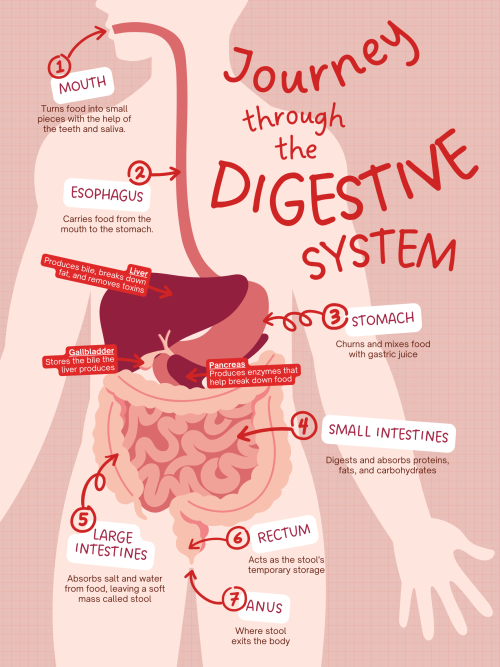Digestive Wellness - Tumblr Posts
Navigating Life with Stomach Issues: Coping Strategies for a Healthier You Shaina Tranquilino December 17, 2023

Living with stomach issues can be incredibly challenging and impact various aspects of our lives. The difficulties in eating, drinking, and dealing with pain and discomfort can take a toll on both our physical and mental well-being. However, by adopting certain coping strategies, you can regain control over your life and work towards healing. In this blog post, we will explore some practical tips to help you cope with stomach issues effectively.
1. Seek Professional Guidance: If you're experiencing persistent stomach issues that are affecting your daily life, it's crucial to consult a medical professional. They can evaluate your symptoms, diagnose the underlying cause, and develop an appropriate treatment plan tailored to your needs.
2. Identify Trigger Foods: Take note of foods that exacerbate your symptoms or trigger discomfort. Maintaining a food diary can help you identify patterns and make informed choices about what to eat or avoid. Consider consulting with a registered dietitian who specializes in gastrointestinal health to create a personalized meal plan suitable for your condition.
3. Opt for Small, Frequent Meals: Rather than consuming large meals that may overwhelm your digestive system, try switching to smaller, more frequent meals throughout the day. This approach can reduce strain on your stomach while still providing essential nutrients.
4. Focus on Digestive-Friendly Foods: Incorporate easily digestible foods such as lean proteins (chicken, fish), cooked vegetables, rice, bananas, oatmeal, and low-fat dairy products into your diet. These options are generally gentler on the stomach and less likely to trigger discomfort.
5. Stay Hydrated: Drinking adequate fluids is crucial for overall health but can be challenging when you have stomach issues. Sip water throughout the day instead of chugging large amounts at once. If plain water worsens symptoms, consider infusing it with fresh fruits or opting for herbal teas to help with hydration.
6. Manage Stress: Stomach issues can often be exacerbated by stress and anxiety. Engage in stress-reduction techniques like deep breathing exercises, meditation, yoga, or gentle physical activities. Prioritizing self-care and making time for activities you enjoy can significantly impact your overall well-being.
7. Experiment with Natural Remedies: Some individuals find relief from stomach discomfort through natural remedies such as ginger tea, chamomile tea, peppermint oil capsules (under medical guidance), or probiotics. However, it is essential to consult your healthcare provider before trying any new supplements.
8. Practice Mindful Eating: Eating mindfully involves paying attention to the taste, texture, and aroma of your food while being fully present during each bite. This practice can aid digestion and prevent overeating. Avoid distractions like screens during mealtime to focus on enjoying your food.
9. Support System: Living with stomach issues can be emotionally challenging. Seek support from friends, family members, or online communities who understand what you're going through. Sharing experiences and learning from others' coping strategies can provide comfort and valuable insights.
Coping with stomach issues requires patience, perseverance, and a proactive approach towards managing symptoms effectively. By implementing these coping strategies - seeking professional advice, identifying trigger foods, adopting a digestive-friendly diet, staying hydrated, managing stress levels, trying natural remedies cautiously, practicing mindful eating, and building a support system - you can take control of your life once more and work towards healing both physically and emotionally. Remember that everyone's journey is unique; therefore, finding what works best for you may involve some trial-and-error alongside professional guidance.